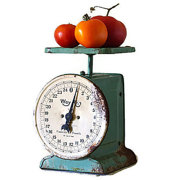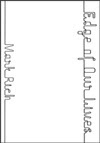Illegally Malingering . . .
Saturday, November 14, 2020
Sunday, November 1, 2020
A Poem for November Third:
Planting Garlic
One never knows quite when. November third,
this time. Forking and rooting one long patch,
white hands belie heart's warming, while they scratch
at living for its clove of grace. I heard
a bitter night comes, soon. So — now to grope
in stiff, chill soil, against the stillness near,
or never. Apple leaves cling late, this year —
dusk-green, blight-mottled, holding dear to hope:
small ears, curled, cupped to hear the Delphic lyre
one last time, before falling off — to sleep
down on this narrow bed, perhaps, with sheep
snow-wool pulled high. Nearby I nurse a fire
of twigs. Hands warmed, I plant, then — and I keep
ears cupped, for dying fall. Flames, too, expire.
November Third:
On the sonnet "Planting Garlic"
I usually prefer not to add notes to a poem, but also usually prefer not to place a poem onto my blog — unless it seems of the moment, particularly the ever-so-quickly changing political moment.
I placed my sonnet "The Winter King" here due to Forty-Five's blusterous insanity about building walls, which I thought might abruptly land him in an asylum. So I rushed it, a bit: the poem appeared on this blog, in consequence, in a version not-quite final. A few words in it remained restless, and changed themselves soon enough. As it turned out, I would have had time aplenty to collect rejections for the effort. Forty-Five, who here in my blog writings runs rampage also as Koom-Posh, hid behind presidential immunity, and successfully maintained the Gipper tradition of mentally incapacitated rule.
The poem I will post after posting this note, however, I am not rushing onto this blog. I wrote its first draft very nearly a year ago. It won its place in my morning recitations to myself, so that I reexamined it daily through the year. (Is "morning recitations to myself" at all unclear? Its nature is simple: I recite poems to myself while making breakfast, feeding birds, or gardening.) Several times, during this, I told myself that the sonnet had reached finality. A restlessness in the words would soon again reappear, however. Then, in recent weeks, in October, the words found their way to a resting place.
The sonnet had seemed odd to me, in one aspect — which I left alone, even so — for its mentioning a specific date. November third was the day last year when, at the last possible opportunity, I was planting garlic. That the date made its way into the poem was an accident of the moment. But throughout the following year I knew, thanks to this accident, the exact date when I had been out in the cold, aware of the oncoming deep freeze while also beset by the discomforting feelings of mortality that had been mine since sometime midsummer.
An autumnal pall of uncertainty had fallen over me, well before the season arrived.
By the time the poem came to its resting state in October, of course, the air here in the States blew thickly with thoughts, admonishments, incantations, and dreads concerning November third.
Until the poem was at rest I saw this as mere coincidence. After the words settled, I saw it still as a coincidence.
But as a meaningful one.
The autumnal pall of uncertainty is here, upon all the land — as it has been for nearly four years. The Winter King arrived in 2016, even though the true winter of his soul will not fully enwrap our world until, or unless, he is given chance to unfold it.
But it is cold, now. We need a fire of twigs to warm our hands.
The only possible place where I might put out my offering, my little twig, in time to meet the moment which is upon us, is on my blog.
However few my readers may be, here, they are ones whom I know to be able to place their humanity near just such a twig, to access such warmth as may be there.
May all fully and truly human beings in this country find their own inner self-assurance, as well as their reassurance, by November third.
Cheers . . .
Toys in the Age of Wonder
My new book has been published.
I am here announcing it . . . about a month late. Am I laggard in my affections? (Where in the world does that line come from?) Actually, I rather like this book. I have lived with it for ten years, and have struggled over its myriad subjects, facts, and ideas for many more. It has its flaws, but sits all the same among my most important efforts, in the arts.
Toys in the Age of Wonder: Science Fiction, Society, and the Symbolism of Play brings together many things. My personally favored title, Wonder Tales, Toys, and the World that Swallowed Itself, I believe does convey some of the book's breadth. In it, I am talking much less about science fiction than the wonder tale; I am thinking about toys whether they were dimestore baubles or Emerson's "toys that infatuate men and which they play for;" and I am exploring the West's efforts to technically envelope the human sphere — a "consolidated civilization scheme," as I recall a character saying, in one story I discuss. I speak about toy history, history of science, novels, poetry, comic strips, lexical changes, and cultural changes. I draw in works by Poe and Verne, in particular, and by many other authors along the way — with "the way" moving mainly along a time-line from 1859 to 1957-8. My method is cultural criticism, on model of Lewis Mumford, with further guidance taken from the writings of Northrup Frye and Van Wyck Brooks — among, again, many others.
The book's illustrations, all in black and white, make it other than the glossy and colorful affairs which some among my earlier ones were. The items pictured, however, show what sorts of things fascinate me: illustrations from both children's and older-reader books; photographs of children with toys; catalog pages; postcards; World's Fair images and memorabilia; and the toys themselves, children's and adult — anything, in other words, that conveys the symbolic reality that prevails, to my point of view, over the concrete, in culture.
I should note that my announcement's delay comes from concern and circumstance. I did and do wonder: should I, indeed, make a quiet noise about this, and act as though the book's publication might rank in any way against the troubles of our time — the pandemic, the criminal political "leadership," the bought-and-sold legislatures, the bestial police actions, the wildfires, the extinctions, the dying of the only economy that truly matters, which is the economy of life on Earth?
The book does rank, in a way, and not only because it happened to become a fact in this particular time. It ranks, in its small way, because, for the patient few who read it, it will help elucidate how it is that we placed ourselves into these times which encompass our lives. Moreover, it discusses the process by which our present conditions came into being.
A circumstance working into this announcement's delay came about from my having an "outdated" computer system which my blog's host decided to stop recognizing or allowing, a few months ago. Having limited means, limited technical savvy, and a will-to-succeed that often ends up absorbed in soup-makings, dishwater, and garden dirt, it took me quite a while to reach that point in which I could not only pencil these words but also publish them electronically here.
My sympathy for those poorer than I am has grown quite keen. So much activity has shifted on-line during the pandemic that ever more individuals are, literally, being virtually excluded from society. While a part of society is reflected off and conducted by the shell of satellites circling Earth, another part goes unreflected.
Now myself enabled, until that point when I am granted obsolescence once again by our technological shell, I propose to make some quiet noise in relation to my book — with the hope that people will understand that if I make myself a nuisance — oh, if only! — I do so not to advance my fortunes, which will grow by little more than nothing from this effort, but to advance my society's, in however microscopic a manner.
Cheers . . .
P.S. The book has a higher price-tag than I might wish. When your nearest library reopens, please make a request for it.






